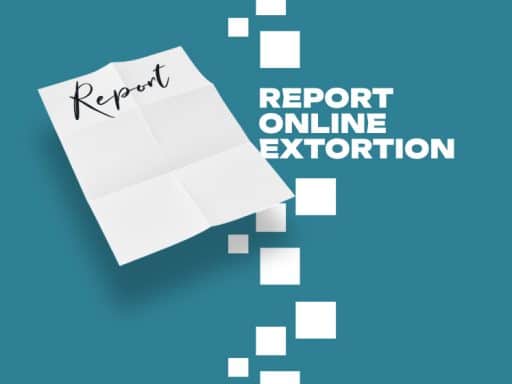Online blackmail is one of the most prevalent cybersecurity threats and is showing no signs of slowing down. Between January and February 2024, the Cyber Security Authority received 85 reports of online blackmail, an astounding 254% increase from the same span in the previous year. Figures like this illustrate the dire need for internet users to be able to identify and avoid blackmail threats.
How Online Blackmail Works
Internet blackmailers rely on having — or the perception of having — your personal information. They use a variety of methods to acquire this data, including social engineering, phishing, and system infiltration.
How to Identify an Online Blackmail Scam
Blackmail can take various forms with differing intentions, but the main objective is almost always financial gain. In their pursuit of riches, scammers often take inspiration from tactics that worked in the past. As a result, there are some underlying similarities that may tip you off to a potential scam.
Techniques Used by Scammers
- Social Engineering: Blackmailers may try to earn their target’s trust through emotional manipulation. They may feign a shared passion for pastimes and similar interests that they’ve learned from your digital footprint.
- Phishing: The scammer may opt to contact you under the guise of a trusted institution, like a bank or government agency. They may set up a message with spoofed sender information, stolen graphics, and hidden malicious links.
- Fear Tactics: Many blackmail schemes begin to unravel the further you look into them. The scammer needs their target to act quickly, and fear is a great motivator. If they can keep you scared, they remain in control.
Common Red Flags of Online Blackmail
- Too Good to Be True: If your perfectly sculpted, well-mannered, and wealthy dating match reaches out to you on the internet and begins attempting to derive personal information, assess the situation logically. Would you believe it if your friend was telling you about a similar online interaction?
- Suspicious Profiles: The inverse of being ‘too perfect’, you should also be wary of profiles that just seem off. Look out for users with unusual posting habits, barren profiles, and an extremely small or large friends list. At best, it’s a bot account. At worst, you’ve crossed paths with a cybercriminal.
- Early Flattery: You may hit it off with someone on the web and have a genuine conversation that includes compliments or even some flirting. However, if you feel like you are being bombarded with intense flattery at an early stage, there’s a chance that you’re being primed for a scam.
- Sense of Urgency: As we stated, the perpetrator wants you to make a hasty decision. They may send an ordinary-looking link that you just need to check out. But when you click the link, it takes you to a phishing website that steals your credentials and opens you up to web blackmail and fraud.
- Threatening Messages: At this point, it’s pretty apparent what is transpiring. The blackmailer makes their true intentions known by levying threats of releasing your private information. These threats are accompanied by demands. In some forms of blackmail, like email blackmail, the correspondence may kick off with threatening messages.
Get Out Ahead: Steps You Can Take Before the Threat
Now that you know how to identify an online blackmail scam, you need to take preventative measures in the areas of your online presence that you control.
Secure and Audit Your Online Presence
Limit a potential blackmailer’s access to your information by increasing the security settings on any online accounts you have. Set social media profiles to private and vet your followers. You should update your passwords regularly and use optimized login security features. Also, audit your profiles and evaluate if the content you have posted could be used against you.
Identify Any Data Leaks
Many blackmail scams are fueled by leaked credentials from previous data breaches. A blackmailer can gain insight into your contact information, location, and other identifiable information that can be used to increase the perceived validity of their fraudulent actions. You can search sites like haveibeenpwned.com to see if your data is out there, and you should update your login info anytime it’s been featured in a leak.
Avoid Oversharing
Your online profiles can be a fun place to share your life with friends and family, but it also serves as a database for scammers. Don’t share personal information online, even if you believe the recipient is someone you trust. Avoid posting photos that share personal information like your daily routine, places you visit, or credentials and account information.
Have a Zero-Trust Mindset
Unfortunately, there are bad actors in every alleyway of the internet. This means you need to be skeptical until proven otherwise, not the other way around. When you meet someone on the web, ask them questions that would be difficult to fabricate believable answers for. With the development of AI technology, it’s never been easier to create convincing, deceptive material. Likewise, it’s never been more important to critically analyze your online interactions.
How Digital Forensics Corp. Can Help You Avoid Online Blackmail Scams
At DFC, our team of experts has seen and successfully handled thousands of cases of online blackmail. We know how these criminals operate, and we have the capabilities to see through their charade.
With our proprietary techniques in IP tracking and metadata analysis, we can analyze your conversations to identify the origin of the exchange. We can determine the location, creation date, and even the device used to share any files from your chat logs. With this information, we can determine the true identity of the potential blackmailer.
We can even take over communication on your behalf. With our prior knowledge of blackmailer tendencies and the use of the techniques listed above, we can determine if the person you are speaking with is a cybercriminal.
Staying Informed: Beating Internet Blackmail with Intellect
Cybercrime is constantly evolving with the forward march of technology. In concurrence, you need to remain up to date with the latest scam trends and position yourself to avoid them.
There are numerous outlets across the internet that provide resources to help users improve their cybersecurity awareness. DFC’s blog library, for example, offers a plethora of free educational material that covers the vast scope of cyber scams.
And regardless of whether you need help identifying a potential cybercriminal or assistance recovering lost funds, DFC is here to help. You can reach out any time of day to speak with one of our specialists.






